In the ever-evolving landscape of healthcare, the role of health labs has become increasingly pivotal. These hubs of innovation and discovery are at the forefront of transforming the way we approach medical research, diagnostics, and patient care. Through the integration of cutting-edge technologies, such as artificial intelligence (AI) and big data analytics, health labs are driving groundbreaking advancements that are poised to reshape the future of the healthcare industry.
The healthcare sector has long been ripe for disruption, and the rise of AI-powered tools is paving the way for substantial improvements. According to a recent study (PMC7325854), the application of AI in healthcare is expected to cut annual US healthcare costs by a staggering $150 billion by 2026. This shift is largely driven by a move from a reactive to a proactive healthcare model, where the focus is on preventive care and health management rather than just disease treatment.
The AI-associated healthcare market is projected to grow rapidly, with a compound annual growth rate of 40% expected to reach $6.6 billion by 2021. This exponential growth is fueled by advancements in deep learning and the exponential increase in data and computation-based technologies. Health labs are at the forefront of this revolution, leveraging these innovative tools to enhance diagnostic precision, personalize treatment, and deliver more effective patient-centered care.
Key Takeaways:
- Health labs are hubs of innovation, leveraging cutting-edge technologies like AI and big data to transform healthcare.
- The integration of AI-powered tools is expected to cut annual US healthcare costs by $150 billion by 2026 by shifting the focus to preventive care and health management.
- The AI-associated healthcare market is projected to grow rapidly, reaching $6.6 billion by 2021 with a 40% compound annual growth rate.
- Health labs are at the forefront of this revolution, driving advancements in diagnostic precision, personalized treatment, and patient-centered care.
- Technological advancements in deep learning and the exponential growth of data and computation-based technologies are fueling the integration of AI in healthcare.
Unveiling the World of Health Labs
Health labs are at the heart of the medical research and diagnostics industry, serving as innovative hubs that drive critical advancements in healthcare. These state-of-the-art facilities are equipped with cutting-edge technologies and staffed by dedicated researchers and scientists who work tirelessly to uncover groundbreaking discoveries and develop personalized healthcare solutions.
Exploring the Cutting-Edge Facilities
Step inside the world of health labs and you’ll be surrounded by an array of sophisticated equipment and technologies that power the future of diagnostics and medical research. From advanced imaging systems and automated analyzers to next-generation sequencing platforms, these laboratories are at the forefront of integrating the latest scientific breakthroughs. The health labs seamlessly combine these cutting-edge tools with robust quality control measures to ensure the accuracy and reliability of their test results, providing patients and healthcare providers with the most comprehensive and reliable information to guide their care.
Meet the Dedicated Researchers and Scientists
Behind the scenes of these state-of-the-art facilities, you’ll find a team of highly skilled professionals dedicated to pushing the boundaries of medical knowledge. Health labs employ a diverse array of researchers, scientists, and clinicians who bring a wealth of expertise to the table, spanning fields such as molecular biology, genomics, bioinformatics, and computational biology. These brilliant minds collaborate closely, leveraging their complementary skills and insights to uncover innovative solutions that can transform the way we approach disease diagnosis, treatment, and prevention.
From conducting in-depth blood tests and analyzing complex genetic data to developing cutting-edge diagnostic tools, the team at health labs is committed to delivering the highest quality of care and advancing the frontiers of medical science. Their relentless pursuit of knowledge and their unwavering dedication to improving patient outcomes make them indispensable partners in the healthcare ecosystem.
As you delve deeper into the world of health labs, you’ll be captivated by the seamless integration of cutting-edge technology, multidisciplinary expertise, and a steadfast commitment to patient-centered care. These remarkable institutions are at the forefront of the medical research and diagnostics revolution, redefining the way we approach healthcare and shaping a future where personalized, precise, and proactive care is the norm.
The Role of Health Labs in Medical Advancements

Health laboratories play a crucial role in driving innovation and advancements within the medical realm. By leveraging the power of collaborative research, these institutions are at the forefront of integrating cutting-edge technologies, such as artificial intelligence (AI), machine learning, and big data analytics, to revolutionize diagnostics and personalized treatment approaches.
Driving Innovation through Collaborative Research
Health labs foster a collaborative environment that brings together researchers, scientists, and medical professionals from diverse backgrounds. This interdisciplinary approach allows for the cross-pollination of ideas and the development of innovative solutions that address the evolving healthcare needs of patients. By combining their expertise in areas like medical research, diagnostics, and precision medicine, these institutions are at the forefront of groundbreaking discoveries and advancements that have the potential to transform patient outcomes.
Harnessing the Power of Data and Technology
The health labs of today are at the intersection of data, technology, and healthcare. By embracing the transformative potential of AI, machine learning, and big data analytics, these institutions are able to extract valuable insights from the vast repositories of medical information at their disposal. This data-driven approach empowers health labs to develop personalized treatment plans, improve disease prevention strategies, and enhance patient-centered care. The integration of these advanced technologies has the power to not only improve healthcare outcomes but also drive down healthcare costs by enabling a more proactive and efficient model of care.
Precision Diagnostics: Tailoring Healthcare Solutions
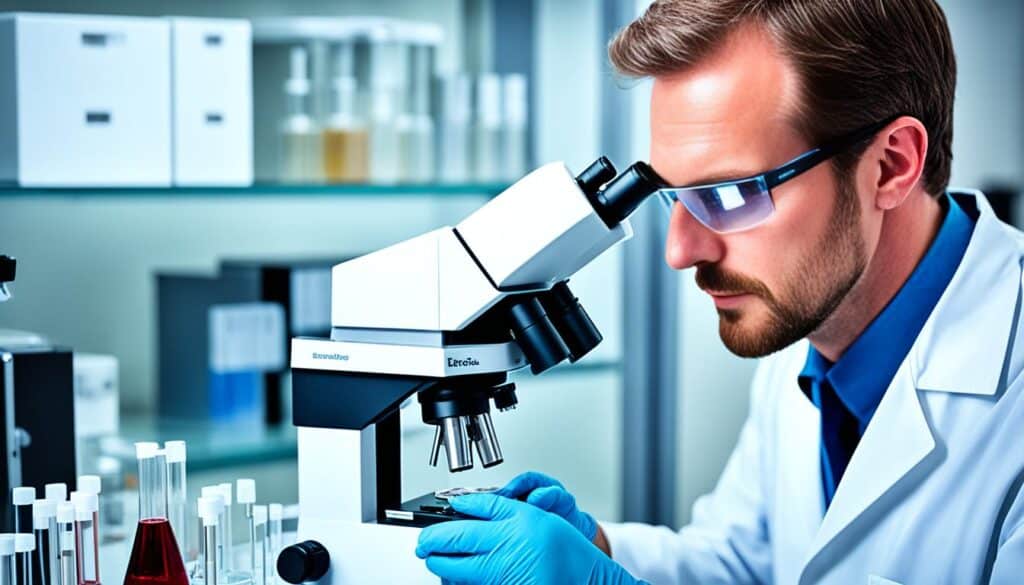
In the rapidly evolving world of healthcare, health labs are at the forefront of a transformative shift towards precision diagnostics. By harnessing the power of advanced technologies, such as artificial intelligence (AI) and genomic analysis, these institutions are paving the way for a more personalized and patient-centric approach to medical care.
Personalized Medicine: A Game-Changer
The integration of precision diagnostics into the healthcare landscape has been a game-changer, enabling health labs to gain deeper insights into an individual’s unique disease profile, genetic predispositions, and treatment response. By leveraging these tailored solutions, healthcare providers can now design personalized treatment plans that are more effective and aligned with the specific needs of each patient.
Genomic Analysis and Targeted Therapies
At the heart of precision diagnostics lies the power of genomic analysis. Health labs have been at the forefront of this revolutionary field, utilizing cutting-edge techniques to uncover the underlying genetic factors that contribute to an individual’s health and disease. This newfound knowledge has paved the way for the development of targeted therapies, where treatment strategies are precisely calibrated to address the specific genetic markers and biomarkers associated with a patient’s condition.
By seamlessly integrating precision diagnostics, personalized medicine, and genomic analysis, health labs are transforming the healthcare landscape, empowering patients and healthcare providers to make more informed decisions and achieve better outcomes. This holistic approach to patient care not only enhances the effectiveness of medical interventions but also promotes a deeper understanding of disease processes, leading to more targeted and preventive healthcare strategies.
| Key Aspects of Precision Diagnostics | Benefits for Patients and Healthcare Providers |
|---|---|
|
|
Clinical Trials: Paving the Way for New Treatments

At the heart of healthcare innovation lie the rigorous clinical trials conducted by health labs. These trials play a pivotal role in validating the safety and efficacy of new medical treatments and diagnostic tools, paving the way for their eventual implementation and adoption. While the promise of AI-powered solutions in healthcare is undeniable, as highlighted in the first source, these technologies still require substantial independent validation to ensure patient safety and treatment efficacy.
Health labs are at the forefront of this crucial process, leveraging their expertise, resources, and access to diverse patient populations to spearhead comprehensive clinical trials. These trials not only evaluate the performance and impact of new medical treatments and diagnostics, but also provide invaluable data and insights to drive healthcare innovation and guide the drug development pipeline.
By rigorously testing new treatments and technologies through controlled studies, health labs ensure that only the most promising and safe solutions are ultimately brought to market. This commitment to patient safety and treatment efficacy is a hallmark of the vital role health labs play in shaping the future of medical research and diagnostics.
| Key Aspects of Clinical Trials Conducted by Health Labs |
|---|
| Evaluating the safety and efficacy of new medical treatments and diagnostic tools |
| Providing data and insights to drive healthcare innovation and guide drug development |
| Ensuring only the most promising and safe solutions are brought to market |
| Upholding the highest standards of patient safety and treatment efficacy |
| Leveraging diverse patient populations and cutting-edge research capabilities |
By pioneering rigorous clinical trials, health labs play a crucial part in advancing medical research, validating new treatments and diagnostics, and ultimately driving healthcare innovation that improves patient outcomes and transforms lives.
Health Labs: Empowering Patient-Centered Care

At the heart of modern healthcare, health labs play a pivotal role in empowering patient-centered care by prioritizing the unique needs and well-being of individuals. These specialized facilities leverage advanced technologies and data-driven insights to deliver personalized diagnostic services that cater to the diverse requirements of patients.
Prioritizing Patient Needs and Well-being
Health labs recognize that patients are the true experts when it comes to their own health. By fostering a collaborative partnership with patients, these institutions strive to gain a deeper understanding of their needs, concerns, and preferences. This patient-centric approach enables health labs to tailor their diagnostic services to address the specific challenges faced by each individual, ensuring that the care they provide aligns seamlessly with the goals and values of the patients they serve.
Through the integration of cutting-edge technologies, such as telehealth and remote monitoring solutions, health labs are breaking down traditional barriers to healthcare access. By offering accessible and affordable diagnostic services, these facilities are actively working to promote healthcare equity and provide underserved populations with the necessary tools to proactively manage their well-being.
Accessible and Affordable Diagnostic Services
In an era of rising healthcare costs, health labs are committed to making diagnostic services more accessible and affordable for all. By leveraging cost-saving technologies and streamlining their operational processes, these institutions are able to offer high-quality diagnostic tests at prices that are within reach of patients, regardless of their financial circumstances.
Furthermore, health labs are pioneering innovative solutions, such as telehealth and remote healthcare options, to expand the reach of their services and ensure that patients, even in remote or underserved areas, can easily access the diagnostic care they need. This commitment to accessibility and affordability is a testament to the health labs’ unwavering dedication to promoting proactive healthcare and preventive care for all.
| Key Initiatives | Impact on Patient-Centered Care |
|---|---|
| Personalized Diagnostic Approach | Tailoring services to individual patient needs and preferences |
| Telehealth and Remote Healthcare | Improving accessibility and convenience for patients |
| Affordable Diagnostic Testing | Enhancing healthcare equity and enabling proactive care |
| Data-Driven Insights | Informing treatment plans and improving patient outcomes |
The Impact of Health Labs on Public Health
Health labs play a pivotal role in shaping the landscape of public health by leveraging their expertise and resources to drive early disease detection and prevention efforts. These specialized facilities are at the forefront of harnessing the power of advanced technologies, such as artificial intelligence (AI) and data analytics, to shift the healthcare model from a reactive to a proactive approach, as highlighted in the first source.
Early Disease Detection and Prevention
By employing cutting-edge diagnostic tools and techniques, health labs are able to identify potential health issues in their earliest stages, enabling timely intervention and effective disease prevention strategies. This proactive approach not only enhances individual health outcomes but also contributes to the overall well-being of the community, reducing the burden on the healthcare system and promoting long-term cost savings.
Addressing Health Disparities and Inequities
Health labs recognize the critical importance of addressing persistent health disparities and inequities in marginalized communities. Through targeted outreach programs, strategic partnerships with community organizations, and the provision of accessible and affordable diagnostic services, these institutions are working to bridge the gap in healthcare access and ensure that vulnerable populations receive the essential preventive care and disease detection they deserve.
By addressing the social determinants of health, such as socioeconomic status, education, and environmental factors, health labs are playing a pivotal role in promoting health equity and improving public health outcomes for all individuals, regardless of their background or circumstances.
| Key Impact of Health Labs on Public Health | Benefit |
|---|---|
| Early Disease Detection and Prevention | Timely intervention, effective disease management, reduced healthcare costs |
| Addressing Health Disparities and Inequities | Improved access to preventive care, promotion of health equity, community partnerships |
| Leveraging Advanced Technologies | Improved diagnostic accuracy, personalized healthcare solutions, data-driven insights |
| Collaborative Research and Innovations | Groundbreaking discoveries, enhanced medical treatments, public health advancements |
Behind the Scenes: Advanced Laboratory Techniques
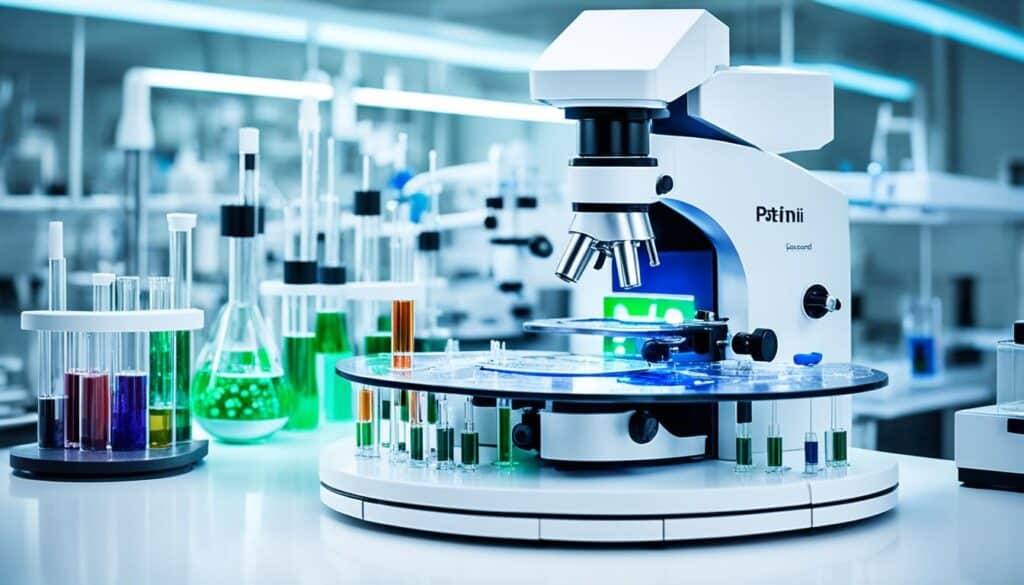
At the heart of health labs lie state-of-the-art equipment and cutting-edge laboratory techniques that enable the delivery of precise, reliable, and high-quality diagnostic services. These institutions are at the forefront of integrating advanced technologies to drive innovations in areas like image analysis, medical device automation, and patient monitoring, all in service of improving healthcare outcomes.
State-of-the-Art Equipment and Technologies
Health labs are equipped with the latest analytical instruments, automated systems, and data-driven technologies to ensure the accuracy and efficiency of their diagnostic processes. From high-resolution microscopes and automated liquid handlers to next-generation sequencing platforms and artificial intelligence-powered image analysis tools, these facilities leverage the power of advanced equipment and technologies to unlock new frontiers in precision medicine and clinical analysis.
Ensuring Quality Control and Accuracy
Maintaining the highest standards of quality control and accuracy is a top priority for health labs. These institutions employ rigorous quality assurance protocols, regular equipment calibration, and comprehensive data integrity checks to ensure the reliability of their diagnostic and medical testing services. By adhering to strict regulatory compliance measures and implementing continuous improvement processes, health labs consistently deliver precise and trustworthy clinical analysis results, prioritizing patient safety at every step.
| Advanced Laboratory Techniques | Benefits |
|---|---|
| Next-Generation Sequencing | Enables detailed genetic profiling for personalized treatment and disease prevention |
| Automated Liquid Handling | Improves efficiency, precision, and reproducibility of analytical workflows |
| AI-Powered Image Analysis | Enhances diagnostic accuracy and speed through computer-assisted interpretation |
| High-Resolution Microscopy | Provides detailed cellular and molecular insights for advanced clinical research |
| Robotic Sample Preparation | Reduces manual errors and increases throughput for high-volume testing |
Health Labs: A Multidisciplinary Approach
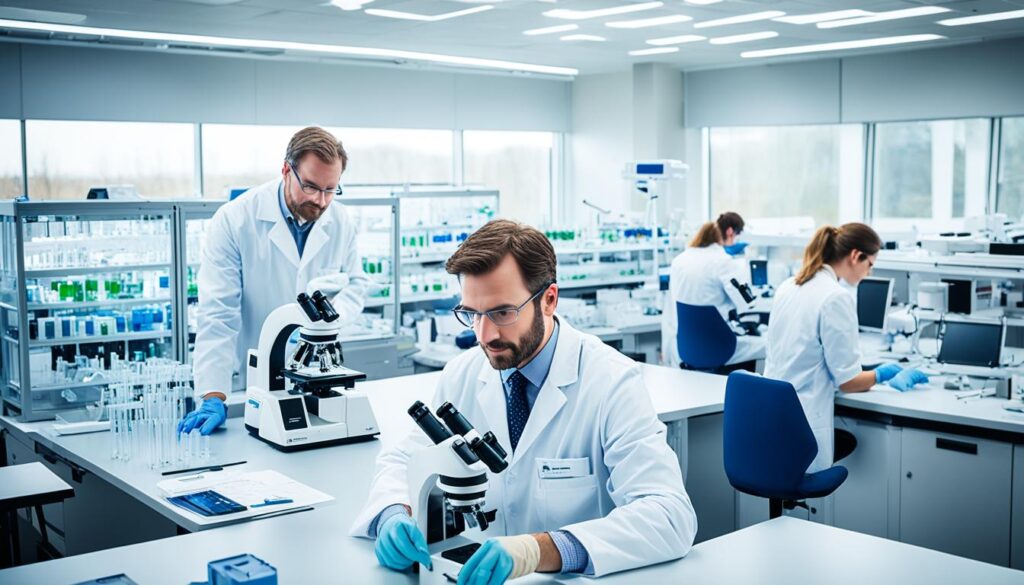
At the heart of healthcare innovation lies the collaborative efforts of diverse teams within health labs. These institutions embrace a multidisciplinary approach, fostering seamless cooperation across a wide range of medical specialties and healthcare disciplines. By integrating cutting-edge research and evidence-based clinical practice, health labs are driving transformative advancements in patient-centered care.
Fostering Collaboration Across Specialties
Health labs understand the power of interprofessional collaboration, bringing together experts from various fields to tackle complex healthcare challenges. From physicians and scientists to nurses, pharmacists, and allied health professionals, these multidisciplinary teams work in harmony, leveraging their diverse expertise and perspectives to deliver innovative solutions. This collaborative approach not only fosters innovation but also enhances the healthcare team’s ability to provide comprehensive, patient-focused care.
Integrating Research and Clinical Practice
The synergy between research and clinical practice is a hallmark of health labs. These institutions actively bridge the gap between scientific discoveries and their practical application in medical education and evidence-based patient care. By seamlessly integrating translational research into their clinical operations, health labs ensure that the latest advancements in diagnostics, treatments, and preventive interventions are swiftly translated into improved healthcare outcomes.
The Future of Health Labs
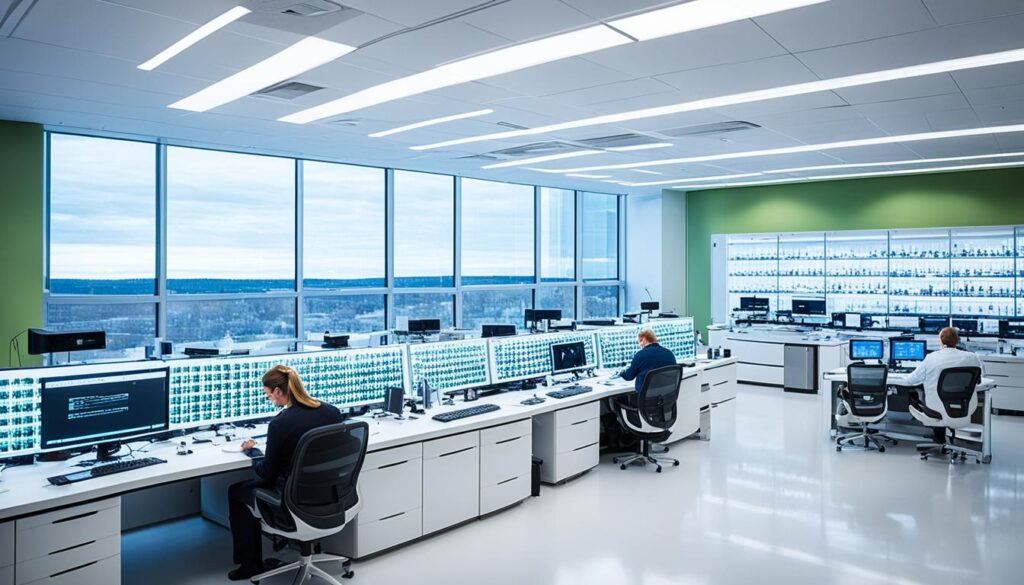
As the healthcare landscape continues to evolve, health labs are poised to play a pivotal role in shaping the future of medical diagnostics and patient care. The integration of artificial intelligence, machine learning, and big data analytics is transforming the way health labs approach their work, ushering in a new era of precision medicine, personalized healthcare, and enhanced telehealth and remote care capabilities.
Emerging Trends and Innovations
Health labs are at the forefront of harnessing the power of technological advancements to drive innovations that address the evolving needs of patients and healthcare systems. From leveraging artificial intelligence for advanced image analysis and automated diagnostic tools to utilizing big data and machine learning to personalize treatment plans, these institutions are redefining the boundaries of what is possible in the world of healthcare.
Challenges and Opportunities Ahead
As health labs navigate the future, they face a range of challenges and opportunities that will shape the direction of the industry. Issues such as workforce shortages, the evolving regulatory landscape, and the need to address healthcare accessibility and equity will require strategic planning and collaboration across the healthcare ecosystem. At the same time, the continued data privacy concerns and the need to foster patient engagement present both obstacles and chances for health labs to innovate and excel.
| Trends and Innovations | Challenges and Opportunities |
|---|---|
|
|
As health labs navigate the future, they must remain agile and adaptable, continuously exploring new frontiers of technological advancements while addressing the evolving challenges and seizing the opportunities that lie ahead. By leveraging their expertise, fostering collaborative partnerships, and prioritizing patient-centric care, these innovative institutions will undoubtedly play a pivotal role in shaping the future of healthcare.
Spotlight on Health Labs: Success Stories
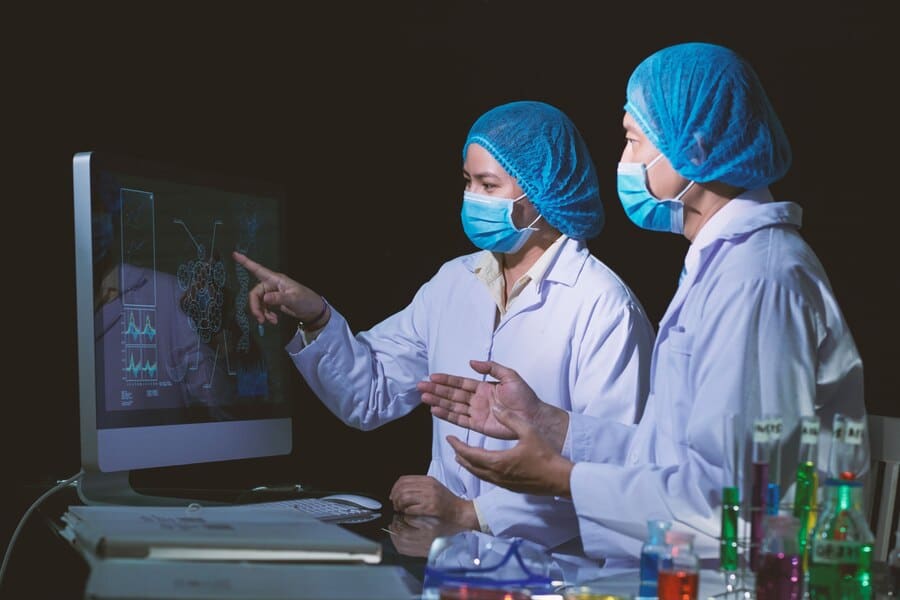
Health labs have consistently pushed the boundaries of medical research, spearheading groundbreaking discoveries and breakthroughs that have transformed the healthcare landscape. Through their unwavering commitment to innovation and patient-centric care, these pioneering institutions have achieved remarkable successes, positively impacting the lives of individuals and communities across the nation.
Groundbreaking Discoveries and Breakthroughs
At the forefront of medical research, health labs have made significant strides in advancing our understanding of complex diseases and developing personalized treatment solutions. From the development of cutting-edge diagnostic tools that enable early disease detection to the pioneering of innovative therapies that target the underlying genetic drivers of conditions, these institutions have continually expanded the frontiers of healthcare.
One shining example is the work of the renowned Mayo Clinic, whose researchers have made remarkable advancements in the field of precision medicine. Their groundbreaking studies on the use of genomic analysis to tailor cancer treatments have led to significantly improved patient outcomes, ushering in a new era of personalized healthcare.
Patient Testimonials and Impact Stories
Beyond the scientific breakthroughs, health labs have touched the lives of countless individuals through their unwavering commitment to patient-centered care. Patients who have entrusted their health to these institutions have shared inspiring stories of their journeys, highlighting the profound impact of the personalized, innovative treatments they have received.
Take the case of Sarah, a young woman diagnosed with a rare genetic disorder. After undergoing comprehensive testing and analysis at a leading health lab, she was able to access a customized therapy that dramatically improved her quality of life. “The team at the lab took the time to truly understand my condition and work with me to find the best solution,” Sarah recounts. “Their dedication and the personalized care I received have given me a second chance at life.”
Stories like Sarah’s underscore the transformative power of health labs, as they continue to forge partnerships with local communities, address healthcare inequities, and elevate the standard of patient care across the nation.
Health Labs: A Vital Component of Healthcare Ecosystems
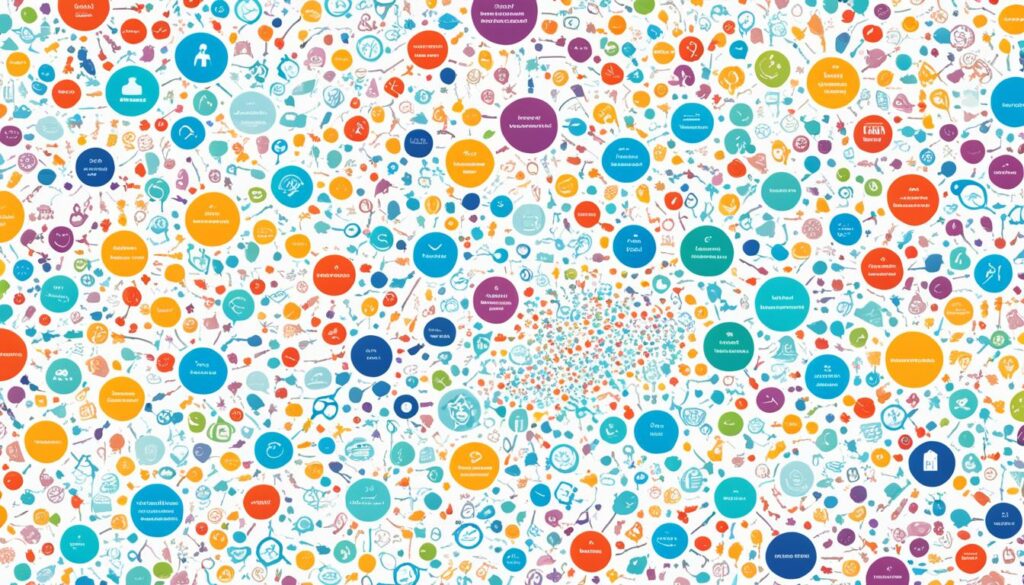
Health labs are an integral and indispensable component of the broader healthcare ecosystems, playing a multifaceted role in advancing medical research, driving diagnostic innovation, delivering patient-centered care, and shaping public health outcomes. As hubs of innovation and collaboration, these specialized facilities serve as critical partners to healthcare providers, healthcare systems, and healthcare policymakers, working in tandem to improve population health and promote preventive care and healthcare equity.
Health labs are at the forefront of groundbreaking discoveries, leveraging the latest advancements in technology and data-driven insights to enhance the accuracy and precision of diagnostics. By fostering interdisciplinary collaboration between researchers, clinicians, and public health experts, these institutions are uniquely positioned to address complex healthcare challenges and drive meaningful improvements in patient outcomes.
From pioneering precision medicine initiatives to spearheading population health interventions, health labs play a pivotal role in shaping the future of the healthcare landscape. Their commitment to excellence, innovation, and patient-centered care makes them an indispensable component of the integrated healthcare ecosystems that are transforming the way we approach and deliver healthcare services.
| Key Roles of Health Labs in Healthcare Ecosystems |
|---|
| Advancing Medical Research |
| Driving Diagnostic Innovation |
| Delivering Patient-Centered Care |
| Shaping Public Health Outcomes |
| Fostering Interdisciplinary Collaboration |
| Promoting Healthcare Equity and Preventive Care |
Also Read: Medical Health Management: Effective Strategies for Well-Being
Conclusion
Health labs have emerged as pivotal players in the ever-evolving landscape of medical research and diagnostics, serving as hubs of innovation, collaboration, and patient-centered care. Through their relentless pursuit of scientific breakthroughs, integration of cutting-edge technologies, and unwavering commitment to improving healthcare outcomes, these institutions have positioned themselves as vital components of the broader healthcare ecosystems.
By harnessing the power of data-driven insights and embracing interdisciplinary collaboration, health labs are at the forefront of driving healthcare innovation and shaping the future of precision medicine. Their efforts in early disease detection and prevention, as well as their focus on addressing healthcare equity, have made a lasting impact on public health and the well-being of communities across the nation.
As the healthcare landscape continues to evolve, health labs remain poised to play a pivotal role in navigating the challenges and seizing the opportunities that lie ahead. Through their unwavering dedication to advancing medical research and diagnostics, these institutions will continue to be the cornerstones of a more equitable, patient-centric, and technologically-driven healthcare ecosystem.
FAQs
Q: What types of tests can I get inside the health labs?
A: Inside the health labs, you can get a wide variety of lab tests including blood tests, urine tests, and other diagnostic procedures.
Q: How can I find out the results of my lab test?
A: You can usually find out the results of your lab test by logging into your online lab testing account or by contacting your doctor’s office for the information.
Q: Is it convenient to get lab tests done at home?
A: Yes, home lab testing is very convenient as it allows you to collect your samples from the comfort of your own home without having to visit a testing center.
Q: Can I order lab tests online?
A: Yes, you can easily order lab tests online through various websites that offer online lab testing services.
Q: Do I need a doctor’s referral to get lab tests done?
A: In most cases, you do not need a doctor’s referral to get lab tests done, especially if you opt for online lab testing services.
Q: Does insurance usually cover the cost of lab tests?
A: Many insurance plans cover the cost of lab tests, but it’s always best to check with your insurance provider to confirm coverage.
Q: How long does it take to get lab test results?
A: The turnaround time for lab test results can vary depending on the type of test being conducted, but generally, results are available within a few days to a week.
Source Links
- https://www.ncbi.nlm.nih.gov/pmc/articles/PMC7325854/
- https://medicine.qu.edu/
- https://mitsloan.mit.edu/action-learning/healthcare-lab




